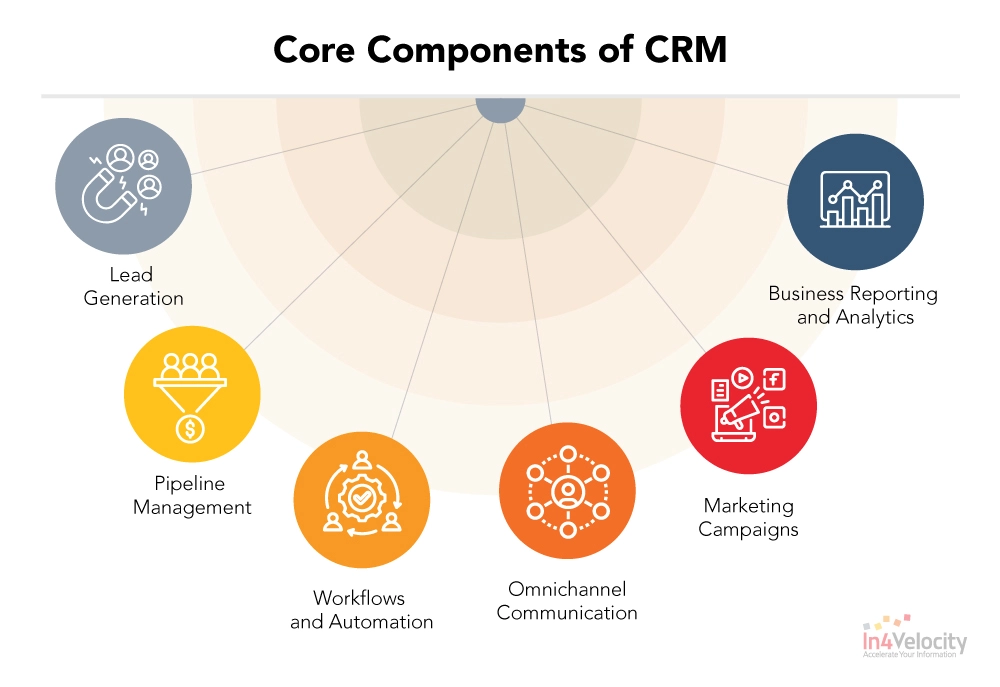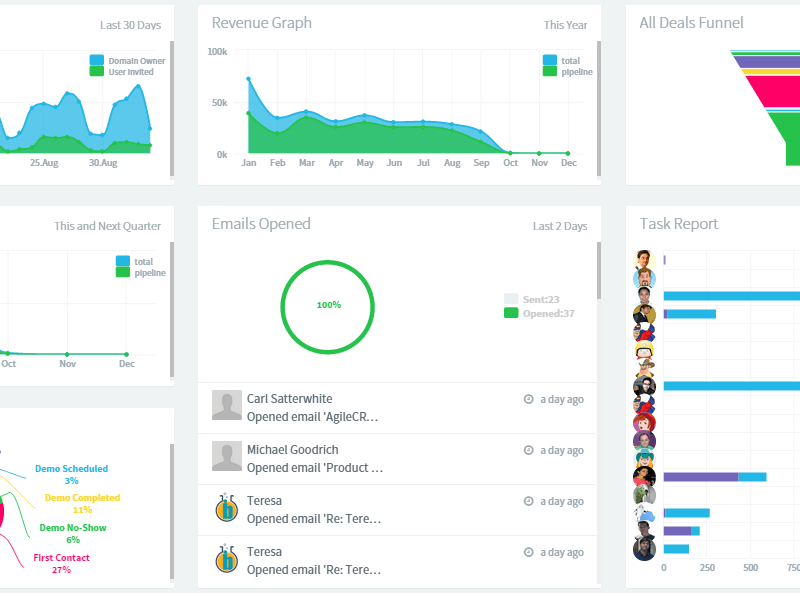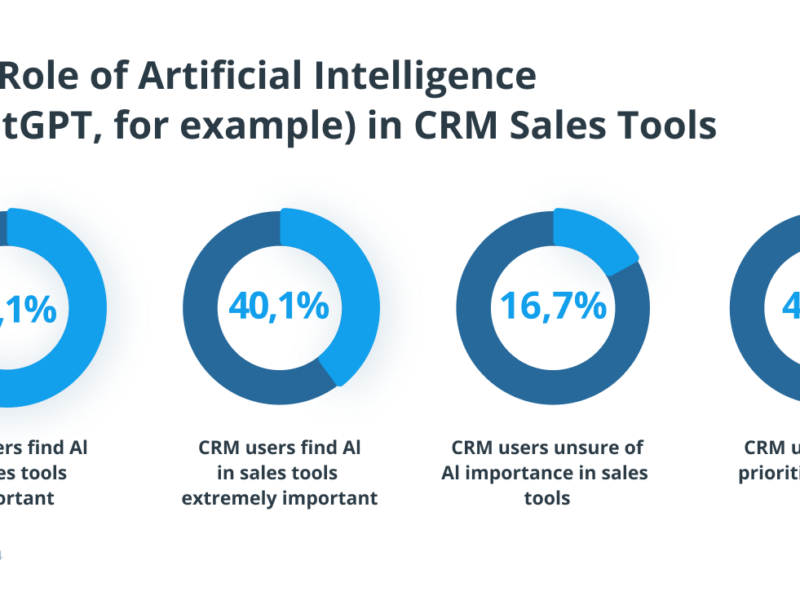In the ever-evolving landscape of business, Customer Relationship Management (CRM) systems have become indispensable tools for companies of all sizes. However, not all CRMs are created equal.
The ultimate CRM is one that seamlessly integrates advanced features tailored to enhance customer interactions, streamline operations, and drive growth. From sophisticated analytics and automation to robust sales and marketing tools, the right combination of features can significantly impact your bottom line.
This article will explore the must-have features that can transform your CRM into a powerful asset, helping you stay ahead in today’s competitive market.
The Ultimate CRM Features for Your Business
Choosing the right Customer Relationship Management (CRM) system is crucial for the success of any business. The ultimate CRM features not only streamline your operations but also enhance customer satisfaction and drive revenue growth.
Here, we delve into the key features that can transform your business operations and customer interactions.
1. Advanced Contact Management
An advanced contact management feature is the cornerstone of any effective CRM. It allows you to store and manage detailed customer information, including contact details, purchase history, and interaction records. This feature ensures that all customer data is centralized and easily accessible, enabling your sales and marketing teams to make informed decisions and provide personalized experiences.
Advanced contact management also includes tools for segmentation, allowing you to tailor your communications and offers to specific customer groups, thereby increasing engagement and loyalty.
2. Sales Automation and Pipeline Management
Sales automation and pipeline management are essential for streamlining the sales process and boosting productivity. These features automate repetitive tasks such as lead tracking, follow-up emails, and data entry, allowing your sales team to focus on what they do best—closing deals.
Pipeline management tools provide a visual representation of your sales process, helping you identify bottlenecks and optimize each stage. With real-time analytics and reporting, you can gain insights into your sales performance and make data-driven decisions to improve conversion rates and revenue.
3. Customer Service and Support Tools
Customer service and support tools are vital for maintaining strong relationships with your customers. Features such as ticketing systems, live chat, and self-service portals enable you to address customer issues promptly and efficiently.
These tools also provide a centralized platform for tracking customer interactions and feedback, which can be invaluable for improving your products and services. Additionally, customer service tools often include sentiment analysis and customer satisfaction metrics, helping you to continuously enhance the customer experience and build long-term loyalty.
| Feature | Description | Benefit |
|---|---|---|
| Advanced Contact Management | Centralized and detailed customer information storage and management | Improved decision-making and personalized customer experiences |
| Sales Automation and Pipeline Management | Automation of sales tasks and visual pipeline tracking | Increased productivity and better sales performance |
| Customer Service and Support Tools | Ticketing systems, live chat, and self-service portals | Efficient issue resolution and enhanced customer satisfaction |
What are the 5 components of CRM?

The five components of Customer Relationship Management (CRM) are essential for effectively managing interactions with current and potential customers. These components work together to streamline processes, improve customer satisfaction, and drive business growth. Here are the five key components:
1. Sales Management: This involves managing the sales process from lead generation to closing deals. It includes tracking leads, forecasting sales, and managing the sales pipeline. Effective sales management ensures that sales teams have the tools and information they need to close deals more efficiently.
2. Marketing Management: This component focuses on managing marketing campaigns and customer engagement. It includes email marketing, social media marketing, and other digital marketing strategies. CRM systems help in tracking the effectiveness of marketing campaigns and personalizing communication to target specific customer segments.
3. Service Management: Service management is about providing excellent customer service to retain customers and enhance their loyalty. This includes managing customer support requests, troubleshooting issues, and providing timely responses. CRM systems can automate service processes and provide insights to improve service quality.
4. Customer Insights and Analytics: This component involves collecting and analyzing customer data to gain insights into customer behavior and preferences. CRM systems can provide detailed reports and analytics to help businesses understand customer needs and make data-driven decisions.
5. Customer Feedback and Support: Managing customer feedback and support is crucial for improving products and services. CRM systems allow businesses to gather and analyze customer feedback, address concerns, and implement changes based on customer input.
Benefits of Sales Management in CRM
Sales management in CRM offers several benefits that can significantly impact a business’s bottom line.
It helps in:
- Centralizing customer data to ensure that sales teams have access to accurate and up-to-date information.
- Tracking the sales pipeline to identify bottlenecks and optimize the sales process.
- Providing real-time analytics to forecast sales and make informed decisions.
Importance of Marketing Management in CRM
Marketing management within a CRM system is essential for effective customer engagement and campaign management.
It aids in:
- Creating targeted marketing campaigns that resonate with specific customer segments.
- Automating marketing processes to save time and resources.
- Measuring the ROI of marketing efforts through detailed analytics and reporting.
Role of Service Management in CRM
Service management in CRM plays a critical role in maintaining customer satisfaction and loyalty.
It ensures:
- Efficient handling of customer support requests and inquiries.
- Personalized and timely responses to customer issues.
- Continuous improvement of service processes based on customer feedback.
What is the ultimate purpose of CRM?

The ultimate purpose of Customer Relationship Management (CRM) is to enhance and sustain profitable customer relationships by improving customer satisfaction, loyalty, and retention.
CRM involves a range of strategies, technologies, and processes that help businesses manage and analyze customer interactions and data throughout the customer lifecycle.
By leveraging this information, companies can personalize their interactions, tailor their offerings, and provide more relevant and timely services, ultimately leading to increased customer satisfaction and business growth.
The Role of CRM in Customer Satisfaction
CRM plays a crucial role in enhancing customer satisfaction by providing a comprehensive view of each customer. This holistic approach allows businesses to understand customer needs, preferences, and behaviors more deeply.
By integrating various customer touchpoints, such as sales, marketing, and customer service, CRM systems ensure that all interactions are consistent and personalized. This leads to a more positive customer experience, which can result in higher satisfaction levels and increased customer loyalty.


